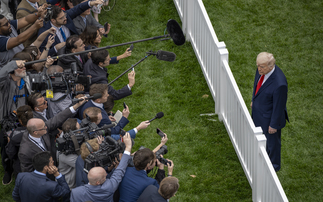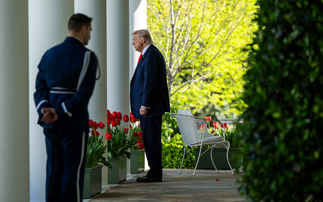In this second of a special three-part Big Question, managers tell Investment Week that investors need to keep a more vigilant and realistic eye on the economy now that Donald Trump has begun his first term as US President.
Nathan Sweeney, senior investment manager at Architas
Domestic focus a boon
From Trump's election being seen as a potential disaster to suddenly being a major boost to markets, there is a chance this could begin to unravel. Investors always tend to be too over-optimistic when considering good news and too pessimistic when facing bad news.
However, Trump's tax cuts and infrastructure spending look set to provide a boost to US growth and corporate earnings. We would expect US growth to shift up a gear in the second half of the year, as it will take time for policy implementation to take effect. This could maintain the momentum in US equities and justify a further re-rating of cyclical assets.
To position our portfolios for this scenario, we have been increasing our exposure to US mid-cap stocks, to take advantage of improvements in the domestic economy.
Trump has talked a lot about on-shoring and bringing jobs back to America, and we are already seeing signs that corporate America is listening. For example, Ford president and CEO Mark Fields is cancelling plans to build a new $1.6bn factory in Mexico and will invest $700m in a Michigan plant.
Will Trump start the capital expenditure ripple effect that markets have been waiting for?
Paul Jourdan, chief executive at Amati Global Investors
Gloomy future
There is a lot of misguided commentary about both the Brexit Bounce and the Trump Bump. People assume that because the market at first fell and then rose following these events, investors believe the doomsayers were wrong and both outcomes are perfectly fine.
This analysis is wrong-headed. The truth is that the UK stock market would be a lot higher in US dollar terms if neither Brexit nor Trump had happened. The markets rose in 2016 because of the finely wrought multi-year recovery plan from the 2009 crisis, of which low interest rates were a key part, has been broadly working.
But investors delayed buy decisions until after the feared polling events, and once they were out of the way the weight of money was always likely to drive markets higher.
The market's verdict on Trump will come several years later, and on current showing we should expect this to be dire.
But before you sell any shares, consider the odds that Trump does not remain in office through his first 100 days, for the emperor has no clothes.
James Butterfill, head of research and investment strategy at ETF Securities
Watered-down policies
Markets have been giving the new President the benefit of the doubt on his tax cutting and infrastructure spend promises. But despite having control of both the House and Senate, we believe Trump will face enormous challenges during implementation.
We are already beginning to see the cracks appear. In his most recent press conference, investors were disappointed by his continued lack of policy detail, and markets responded accordingly.
His proposed reforms, such as his $1trn infrastructure policy, coupled with the need to address the debt ceiling by the end of March, are therefore likely to face considerable resistance from Congress. Some cabinet nominees are now openly contradicting the President.
Nonetheless, we believe investors are repricing the trajectory of future interest rates in the US as the Fed may tighten monetary policy more rapidly than anticipated to curb inflationary pressures from Trump's pro-growth policies.
The sustainability of the rally in the US dollar and equity markets consequently depends on the ability of Trump to surround himself with credible policymakers and refrain from irrational outbursts. We believe his policies will be implemented in spirit, but significantly watered-down in practice.












